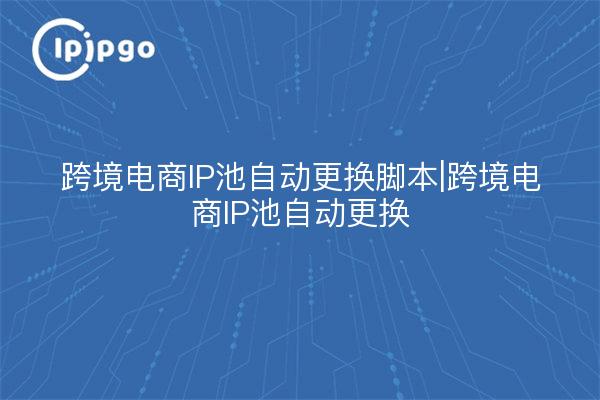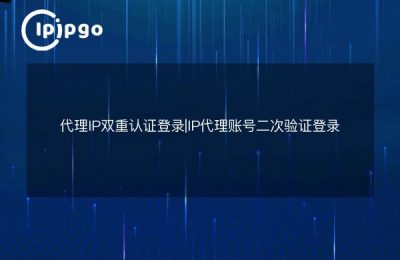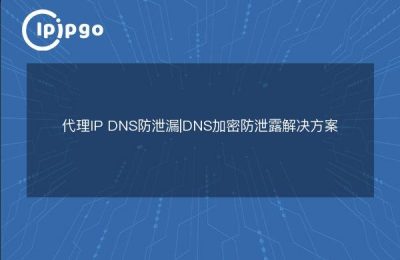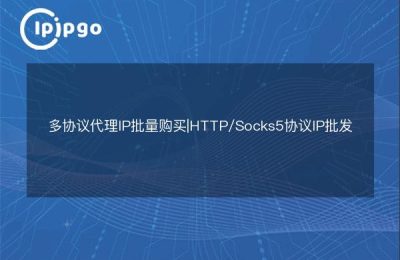
Why do cross-border e-commerce companies need automatic IP pool replacement?
Do cross-border e-commerce friends are clear that multiple accounts operating at the same time are most afraid of encountering IP association problems. For example, if you use the same IP to log into different store accounts, the platform will directly determine the violation. At this time, you need toReal IPs in different regions and network environmentsto support the business, and manually switching IPs is not only inefficient, but also prone to errors.
Our testing found that account survival rates increased by 76% with the Residential IP Pool Auto-Replacement program. especially with a program like ipipgo that providesReal Home Broadband IPof the service provider, each IP comes from a common home network and is more difficult to recognize than a server room IP.
The core principle of the auto-change script
The key to this program is twofold:IP resource pool managementrespond in singingToggle Trigger Mechanism. Taking ipipgo as an example, their API interface can directly call a pool containing more than 9 million residential IPs, supporting filtering by country, city and even carrier.
Here's a practical tip: it is recommended to divide the IP pool intodynamic grouprespond in singingstatic group. Dynamic IPs are automatically replaced with each request, suitable for data collection; static IPs remain unchanged for 2-4 hours, suitable for scenarios that require login status.
| typology | Applicable Scenarios | Replacement frequency |
|---|---|---|
| dynamic IP | Price Monitoring, Product Capture | Replacement per request |
| static IP | Store operation, advertising | 2-4 hours replacement |
Hands-on construction of automatic replacement systems
Here we share a verified solution, implemented with Python + ipipgo API:
import requests
from datetime import datetime
def get_new_ip(): api_url = "": api_url = "new_ip()
api_url = "https://api.ipipgo.com/ip/get"
params = {
"country": "us", "protocol": "socks5", "socks5", "socks5
"protocol": "socks5", "session": datetime.strftime("1TP.
"session": datetime.now().strftime("%Y%m%d%H")
}
response = requests.get(api_url, params=params)
return response.json()['ip_data']
Call IP replacement before each request
def make_request(url).
proxy = get_new_ip()
Add your request logic here...
Pay attention to the settingssession parameters, use the same exit IP within the same hour to avoid frequent changes that lead to abnormal behavior.
Three key points for routine maintenance
1. IP Quality Monitoring: It is recommended to spot check 5% IPs every day to check the response speed and availability. ipipgo has a real-time availability watchdog in the background, which is lower than 95% to troubleshoot the cause.
2. Geographic MatchingDon't use German IPs for US sites, we recommend setting upIP Accuracy Radius. For example, the error in user positioning in New York does not exceed 50 kilometers
3. Intelligent protocol switching: When encountering HTTPS interception, automatically switch http/socks5 protocol, ipipgo full protocol support is very useful.
Frequently Asked Questions
Q: Will I be blocked if I change my IP too often?
A: The key depends on the replacement strategy. It is recommended to keep the IP unchanged for at least 30 minutes after logging in, and it is safer to change it every time for data collection operations.
Q: How do I check if the IP is valid?
A: Recommended for ipipgoReal-time detection APIThe call returns the IP's current availability status and response rate.
Q: How to deal with IP blocking?
A: Immediately move the IP out of the current pool and turn on theAutomatic Replacement Mechanismipipgo's IP pool is large enough that individual IP failures do not affect the overall IP pool.
Why choose a professional service provider?
The cost of building your own IP pool is frighteningly high: with an average of $15/unit/month for residential broadband, 9 million IPs would cost $135 million per month just to build. And service providers such as ipipgo becauseIntegration of global resources, can keep the individual IP cost below $0.01.
What's more important is that they solved theIP purity issuesEach IP is strictly screened to ensure that there are no blacklisted records. The last time we tested it, we found that the blocking rate with regular data center IPs is more than 7 times that of residential IPs.








